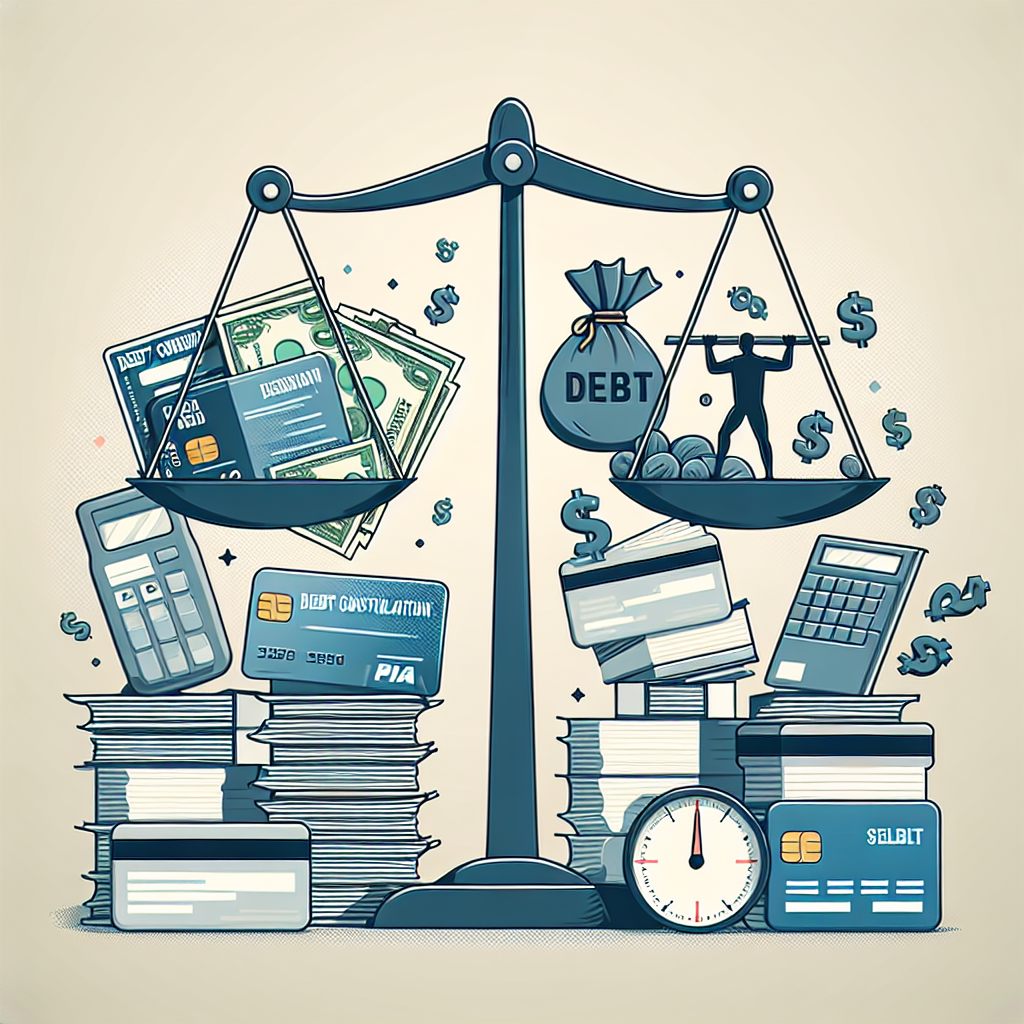When faced with overwhelming debt, many individuals seek solutions that can provide relief and a path toward financial stability. Two popular strategies are debt consolidation and debt settlement. Understanding the differences between these options is crucial for making an informed decision tailored to your specific financial circumstances. In this article, we’ll explore each method in detail, discuss their pros and cons, and help you determine which might be the best fit for your situation.
What is Debt Consolidation?
Debt consolidation is the process of combining multiple debts into a single loan with a lower interest rate. This approach simplifies your monthly payments by averaging them into one single payment, making it easier to manage your finances.
How Debt Consolidation Works
When you opt for debt consolidation, you typically take out a new loan—often a personal loan or a home equity loan—and use the funds to pay off your existing debts. This leaves you with one payment to manage, often at a lower interest rate.
Advantages of Debt Consolidation
- Simplified Payments: One monthly payment is easier to keep track of than multiple payments to various creditors.
- Lower Interest Rates: If you qualify for a loan with a lower interest rate, you could save money over time.
- Improved Credit Score: Paying off existing debts can improve your credit score by reducing your credit utilization ratio.
- Predictable Payments: Fixed-rate loans provide certainty in your monthly budget.
Disadvantages of Debt Consolidation
- Potential Fees: Some loans involve fees that can reduce your savings.
- Risk of Accumulating More Debt: If you don’t change your spending habits, you might find yourself in even more debt after consolidation.
- Longer Repayment Terms: Some consolidation loans may extend your repayment period, potentially resulting in you paying more interest over time.
What is Debt Settlement?
Debt settlement involves negotiating with creditors to settle your debts for less than the total owed. This typically involves working with a debt settlement company or negotiating directly with creditors.
How Debt Settlement Works
In debt settlement, you stop making payments to your creditors and instead save that money in a dedicated account. Once you’ve saved enough, you or your representative negotiate with creditors to pay a lump sum that is less than your total debt.
Advantages of Debt Settlement
- Lower Overall Debt: You can settle your debts for less than you originally owe, potentially saving money.
- Faster Resolution: Debt settlement can often lead to quicker resolution of your debt issues compared to lengthy consolidation processes.
- Avoid Bankruptcy: For many, debt settlement serves as an alternative to bankruptcy that protects their assets.
Disadvantages of Debt Settlement
- Severe Impact on Credit: Settling debts can significantly lower your credit score, making it harder to obtain credit in the future.
- Tax Implications: The forgiven debt may be considered taxable income, meaning you could owe taxes on the amount forgiven.
- Risk of Lawsuits: Creditors may choose to pursue legal action if you stop making payments in hopes of a settlement.
Which Option Is Right for You?
Determining whether debt consolidation or debt settlement is the right choice for you depends on various factors, including your financial situation, credit score, and long-term financial goals. Here are some considerations to help you decide:
Assess Your Debt and Financial Situation
Review your total debt amounts, interest rates, monthly payments, and other financial obligations. If your debts are manageable and you can qualify for a loan with favorable terms, debt consolidation may be a better option.
Consider Your Credit Score
If your credit score is decent, you might qualify for better consolidation loan terms. If your credit is already significantly impacted due to missed payments, debt settlement may be a viable choice, especially if you want to reduce your total debt quickly.
Evaluate Your Long-Term Goals
Consider what you want to achieve financially. If you seek to improve your credit score or want to maintain access to credit in the future, debt consolidation may be more favorable. However, if you’re looking for a quick fix and are willing to accept a temporary dip in your score, debt settlement could be the solution.
Seek Professional Advice
Consult a financial advisor or credit counseling service. They can provide personalized guidance based on your financial situation.
Conclusion
Both debt consolidation and debt settlement offer potential paths to financial relief, but they serve different purposes and have distinct consequences. Assess your individual situation carefully, and weigh the pros and cons to determine the best option for you. By taking control of your finances today, you can pave the way toward a debt-free future.

